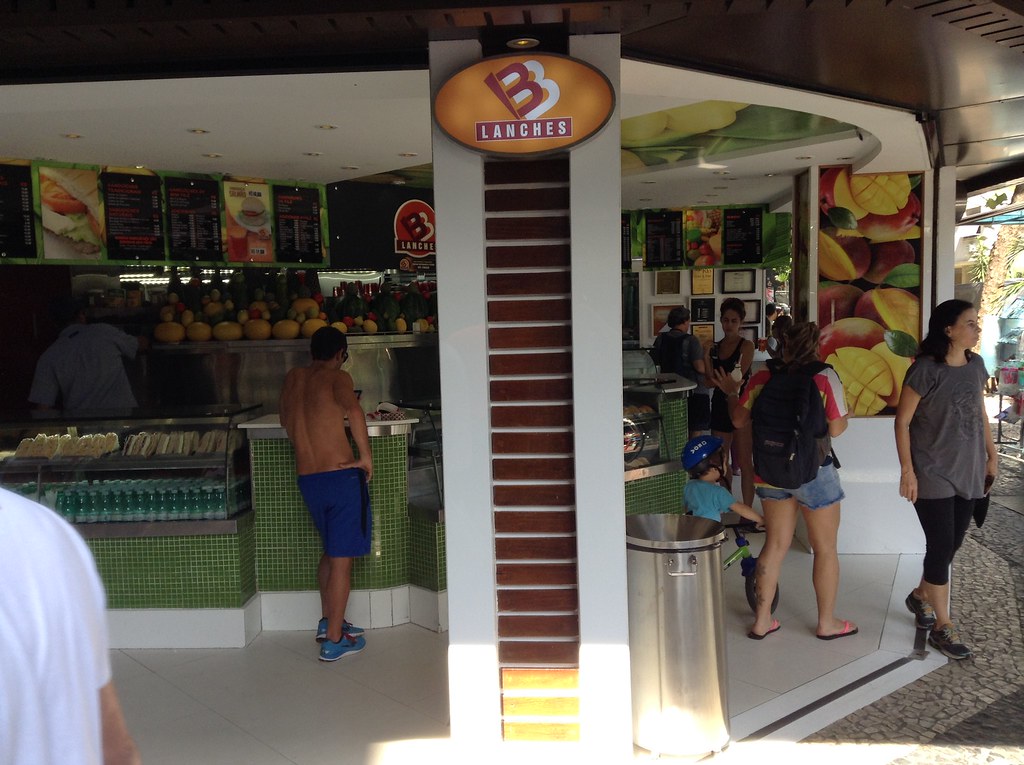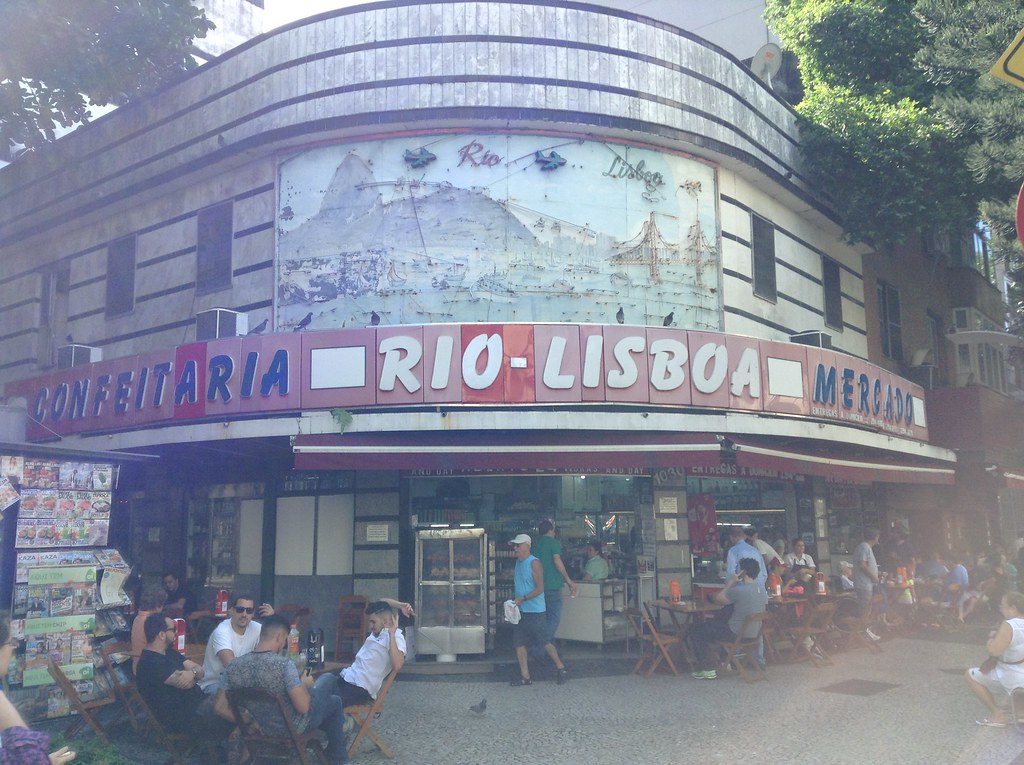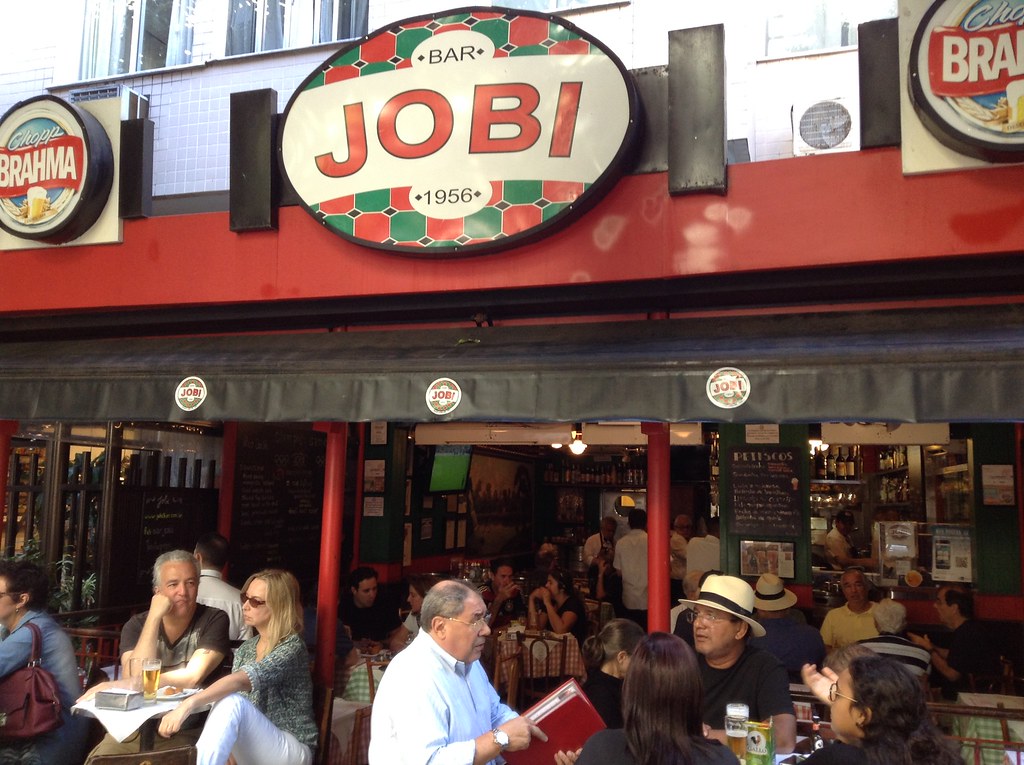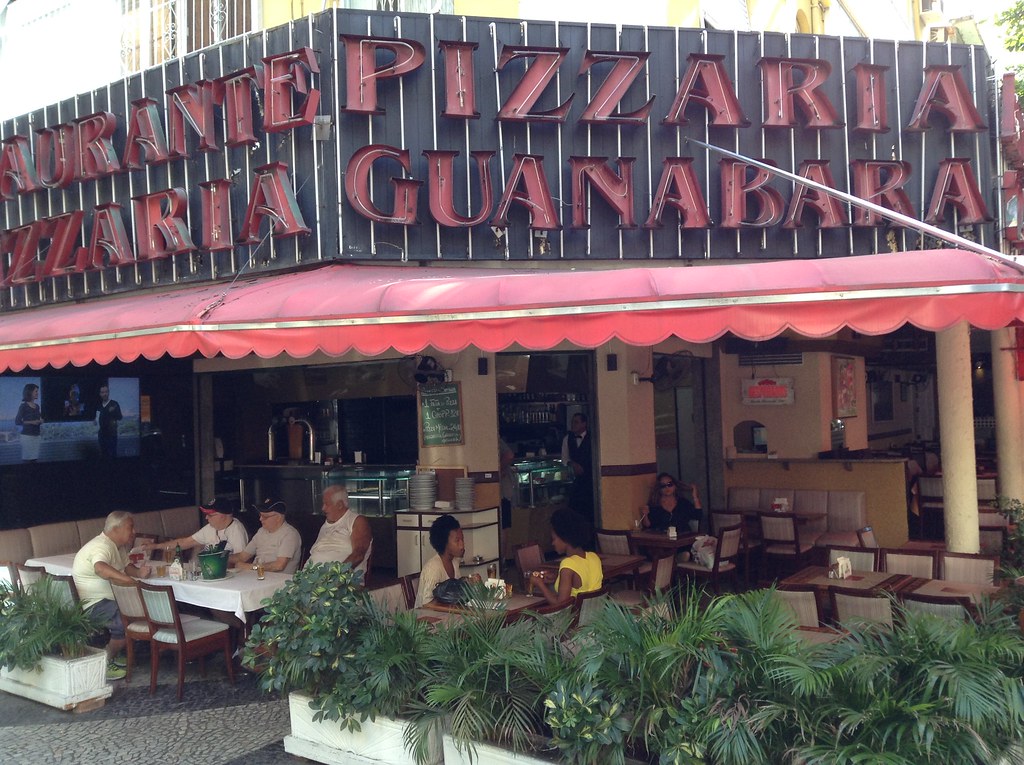My go-to açaí shop these days is called BB Lanches in Rio de Janeiro’s zona sul (“south zone”) neighborhood of Leblon. Open from 9am to 3am and just a few blocks from one of the cleaner inner-city beaches, BB Lanches is a simple open-air place where the motto might as well be: “No shirt? No shoes? Full service!” Here’s a view inside:

It’s down the road from where I’m renting a room from a friend for the next few months leading up to the Rio Olympics in August. Having such close proximity to a top açaí shop is one way how this is the most comfortable setup I’ve had over the past three years that I’ve been traveling around Brazil. Leblon is reported to be one of the wealthier neighborhoods of Rio, and it’s certainly more cushy than some of my other arrangements…
Like those weeks in mid-2014 when I slept on a hammock in a cockroach-infested riverboat in the Amazon; or those innumerable unclean hostels from Porto Alegre to São Paulo; or that month in November 2015 when home was the stuffy top floor of an old Copacabana apartment building where I had to walk over the piss and poo of two dogs (which would sometimes accumulate over days on the kitchen floor) to get to my closet-sized maids bedroom (so small that not even the real maid wanted to live there, apparently). I’m now living in a slightly larger maid’s room, but one that opens onto a plant-filled courtyard, no dog poop.
Leblon is a fairly small bairro, which makes it somewhat exclusive, but it’s got some great old low-key establishments, like the old 24-hour market Rio-Lisboa, established in 1977 and pictured below. (The name Rio-Lisboa is after the capitals of Brazil and Portugal before the capital of Brazil moved from Rio to Brasilia in 1960.) It’s a very communal place where wealthy locals and street sweepers alike all sit at wooden street tables drinking beer or coffee.

Down the street from Rio-Lisboa is Bar Jobi, established in 1956:

And further down the street and across from BB Lanches is Pizzaria Guanabara, established in 1964 with the most beautifully tacky neon sign on the facade. Life is lived outdoors in Rio, and almost every restaurant or bar spills into the surrounding sidewalks.

